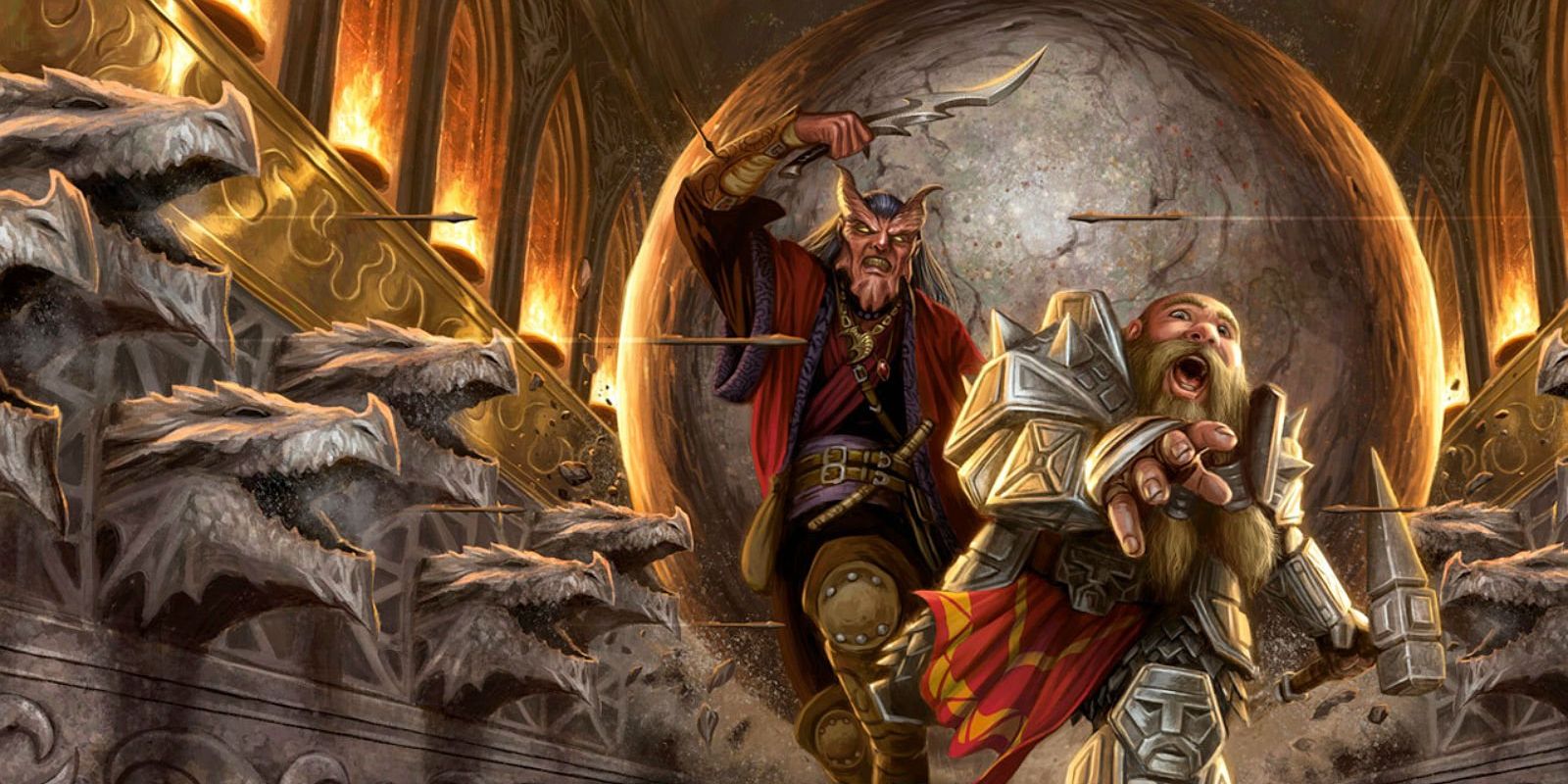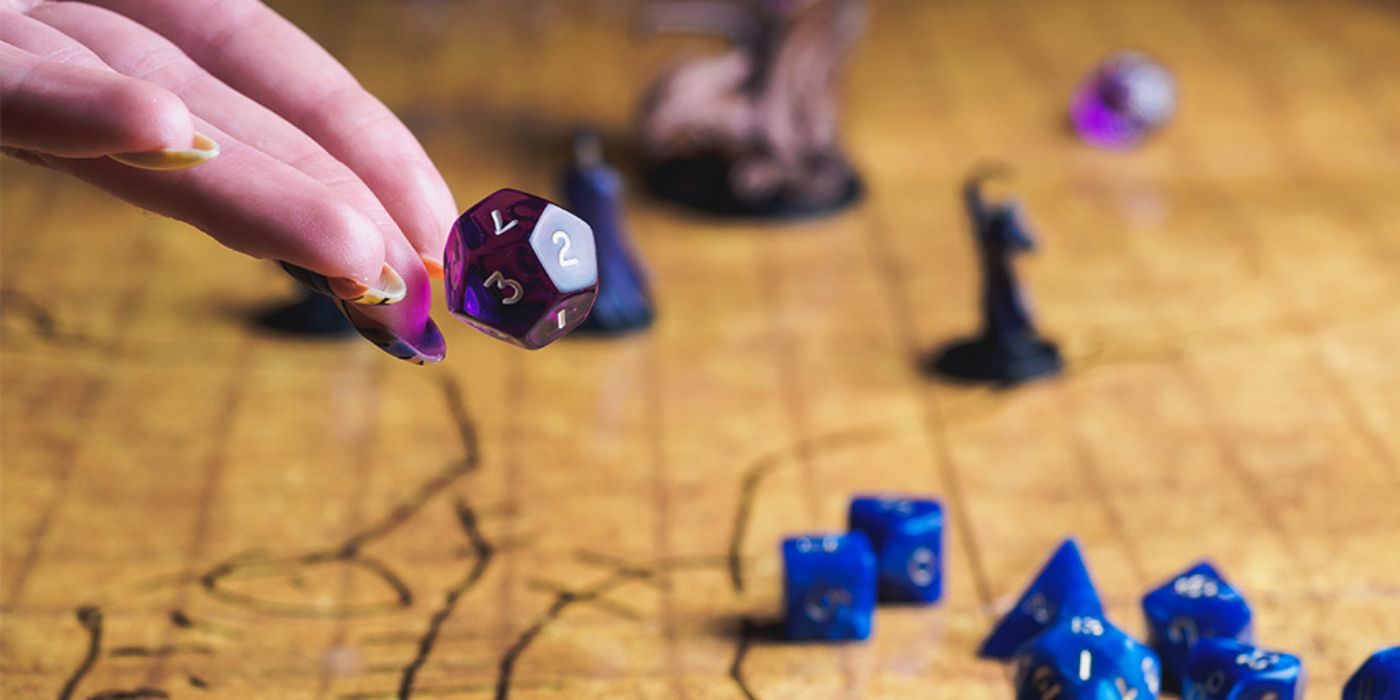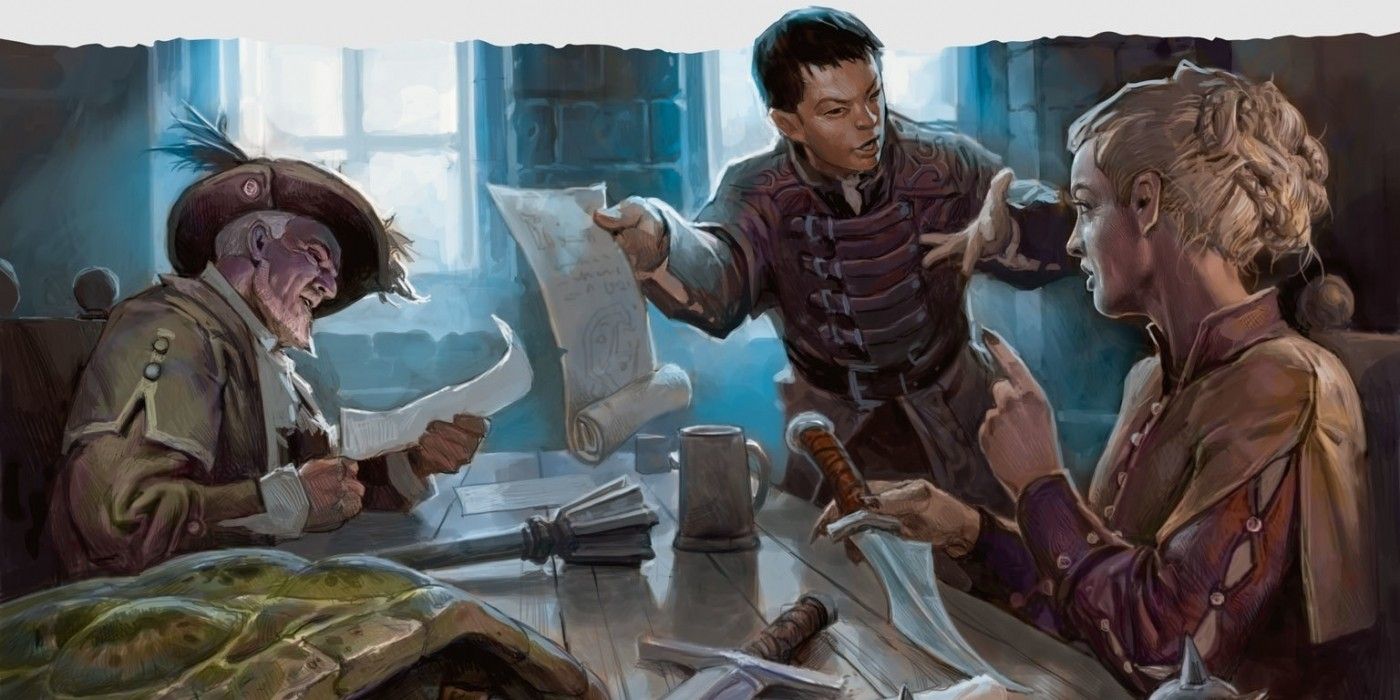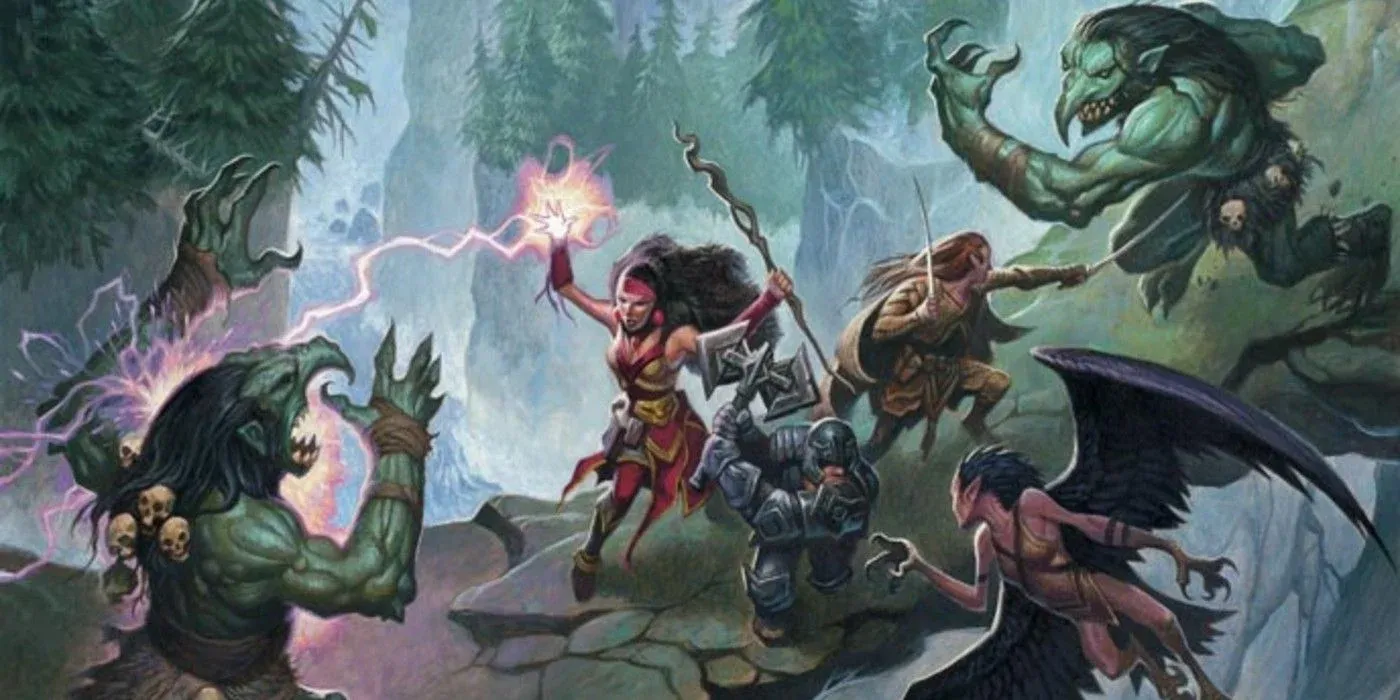Dungeons & Dragons campaigns can sometimes get bogged down. It’s the nature of the game that some things will take longer than others. For example, during combat, melee classes know what they’re going to do every turn, while other more complex classes may need to take time to determine the best course of action. A slow session can leave players feeling frustrated or just plain bored.
When faced with consistent issues in D&D campaigns, establishing some house rules is key to helping move things along. Creating these, however, can sometimes take a bit of effort on the Dungeon Master’s part. It’s also important to discuss any rule changes or additions with players before implementing them. Here are a few house rules that can help to keep the game moving and the players having fun.
Managing Skill Checks Can Reduce Unnecessary Dice Rolls
Managing dice rolls can sometimes become overwhelming for Dungeon Masters, especially when they have a ton to manage already. The game can get a little chaotic, especially if players roll without the DM asking for a check or they want to jump in on another player’s check. There may also be situations where only one player should be making a check, or it doesn’t make sense for another player to help. These chaotic situations can be dealt with using a set of house rules around rolling for skill checks.
To manage dice rolls more effectively, create a pattern for the rolls in a call-and-response style where the player says they would like to do something, the DM asks for a check, the player rolls for the check, and the DM narrates what happens. In situations where more than one player would like to do a check, a common house rule is that nobody else can roll after the first die is rolled. This keeps players from seeing a potentially failed check and deciding to roll based on that. This also keeps the game moving by being distinctively and quickly a failed or successful check.
Another house rule for dice rolls is determining what a failed check means. If, for example, a player is unlocking a door with a Thieves’ Tools check, does a failure mean they can try again with a penalty, or does it mean this lock is too difficult for them and they will never succeed? Following these rules will keep confusion on checks to a minimum, helping to maintain the game’s momentum.
Taking Turns Can Get Everyone Involved
Some players tend to take the spotlight more than others, especially in situations where their characters shine. It’s okay to let individual players excel at what their character is good at, but this can leave out other players who might want to contribute in a different way. D&D is, after all, a collaborative storytelling game. Some parties might have quiet players who would rather not say anything, and other players aren’t quick enough to get themselves in the action before more eager companions jump the gun. In situations like these, a helpful house rule to adopt a classic kindergarten rule: taking turns.
While it won’t work for all scenarios, DMs can treat them like less urgent, more fluid combat encounter. An easy way to do this is by having the DM go around the table and ask what each person would like to do. After, the DM decides who does what, and in what order they happen. Some players might be doing the same activity and would roll their checks accordingly. This way, there isn’t only one character doing everything. Every player is active, thinking creatively, and involved in what others are doing. This speeds up the game by organizing these non-combat encounters into easy-to-manage activities for the DM.
Have a Failsafe If Players Get Stuck
One of the largest hang-ups in D&D is puzzles. Whether that’s a physical puzzle in a dungeon or just investigating a room for clues, if the players get stuck, they can really bring the game to a halt. This is where a failsafe comes in handy, keeping the party from being stuck on one thing for too long. As a house rule, create some way for the party to collectively (in-game) ask for a hint; be sure it makes sense within the context of the game and the party. Players could ask to do a skill check or even straight Intelligence checks to see if their characters would understand or see something the players can’t.
House Rules Can Keep Combat Moving
Combat is another situation where the game can be slowed down significantly. One of the most common problems is players, or even the DM, taking a long time on their turn. Granted, there is much to keep track of, especially for spellcasters. To reduce the chance of everyone else getting bored and losing focus, consider implementing a time limit on turns. One minute is usually a good limit, and should a player reach that while debating between their options, the DM can have them either choose or forfeit their turn. This should also apply to DMs, even when deciding on a rules question. If a turn takes longer than a minute, make a quick decision and come back to it later.





